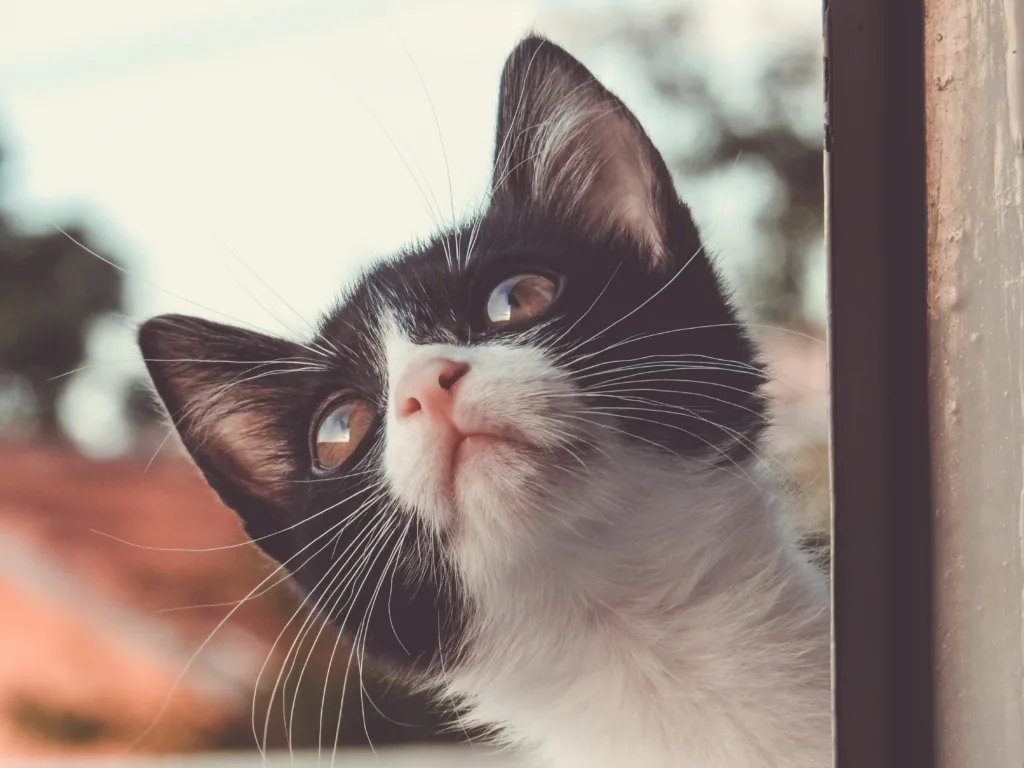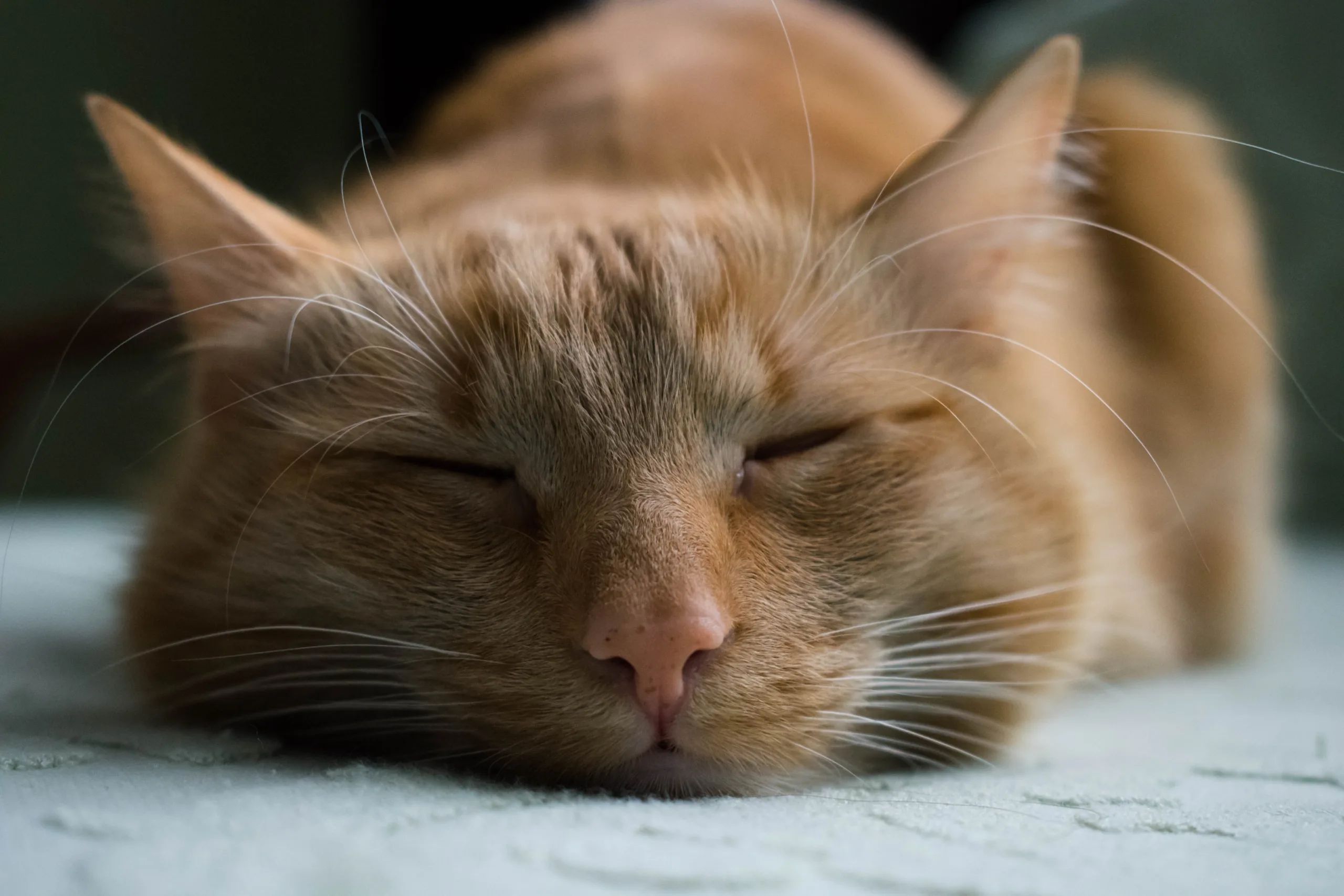Introduction
When it comes to our beloved feline friends, we often find ourselves observing their behaviors and physical attributes. One particular curiosity that cat owners may encounter is the sensation of hot ears in their cats. It’s not uncommon to wonder why our cats’ ears feel warm to the touch. In this article, we will delve into the intriguing world of cat ear temperature and explore the reasons behind this phenomenon.
Cats’ ears are not only adorable but also play a crucial role in their overall well-being. Understanding the temperature of their ears can provide valuable insights into their health and emotional state. So, let’s embark on this journey to uncover the secrets behind our cats’ hot ears.
Understanding the Normal Temperature of Cat Ears
Cats have a fascinating physiology, and their ears play a crucial role in regulating their body temperature. Understanding the normal temperature of a cat’s ears is important for pet owners to distinguish between normal warmth and potential health concerns. Here’s what you need to know:
1. Typical Temperature Range:
– A healthy cat’s ears usually have a temperature between 100.5°F and 102.5°F (38.1°C and 39.2°C).
– This range may vary slightly depending on the cat’s age, breed, and activity level, but it generally falls within these values.
2. Slightly Warm Sensation:
– It’s important to note that a slightly warm sensation when touching your cat’s ears is normal.
– The ears act as thermoregulators, meaning they help dissipate excess body heat, which can cause them to feel slightly warm to the touch.
3. Cool Sensation:
– On the other hand, if your cat’s ears feel slightly cool, it is also considered normal.
– Cats have efficient blood circulation in their ears, which can sometimes result in a cool sensation.
4. Consistency is Key:
– What matters most is the consistency of your cat’s ear temperature over time.
– If your cat’s ears consistently fall within the normal temperature range mentioned earlier, it is generally a positive sign of good health.
Remember, it’s essential to consider other factors when assessing your cat’s well-being. If you notice any other unusual symptoms, behavior changes, or if your cat’s ears feel excessively hot or cold, it’s recommended to consult a veterinarian for a professional evaluation.
Factors Contributing to Hot Ears in Cats
Cats are fascinating creatures with unique physiological responses, and their ears play a significant role in regulating their body temperature. Several factors can contribute to the sensation of hot ears in cats. Let’s explore these factors in more detail:
- Environmental Factors:
- External temperature and weather conditions can impact a cat’s ear temperature.
- Cats may experience warmer ears when exposed to hot weather or direct sunlight.
- Similarly, proximity to heat sources like heaters or sunbathing on warm surfaces can also cause the ears to feel warmer.
- Blood Circulation and Heat Dissipation:
- Cat ears act as thermoregulators due to their extensive network of blood vessels.
- Blood vessels in the ears help dissipate excess heat from the body, resulting in a slightly warm sensation.
- When a cat’s body temperature rises, the blood vessels dilate, allowing more blood flow to the ears and facilitating heat release.
- Emotional State and Stress:
- Cats’ emotional state can influence their blood flow and subsequently affect ear temperature.
- Stress, anxiety, or excitement can trigger the release of adrenaline, which increases blood flow throughout the body, including the ears.
- This increased blood flow can lead to warmer ears as a result of heightened emotional states.
- The fight-or-flight response, triggered by stress or fear, can contribute to elevated ear temperature in cats.
- Health Conditions:
- Certain health conditions or infections may cause a cat’s ears to feel hot.
- Inflammation or infection of the ears, such as otitis externa, can result in elevated ear temperature.
- Other underlying medical conditions, including fever, hyperthyroidism, or systemic infections, can also affect the cat’s overall body temperature and potentially lead to hot ears.
- If you notice additional symptoms like ear discharge, redness, discomfort, or behavioral changes, it is important to consult a veterinarian for a thorough examination and appropriate treatment.
Understanding the various factors that can contribute to hot ears in cats allows pet owners to monitor their feline friends’ well-being effectively. It’s important to note that while slightly warm ears are usually normal, persistently hot ears or accompanying symptoms should be evaluated by a veterinarian to ensure the best possible care for your beloved cat.

FAQs About Cat Ear Temperature
- Is it normal for my cat’s ears to be warmer than the rest of its body?
- Yes, it is normal for a cat’s ears to be slightly warmer than the rest of its body. Cat ears have a rich blood supply and act as thermoregulators, helping dissipate excess heat.
- Should I be concerned if my cat’s ears are consistently hot?
- Consistently hot ears in cats can be a cause for concern. While slightly warm ears are normal, persistently hot ears may indicate an underlying health issue, such as inflammation, infection, or fever. It is advisable to monitor your cat for additional symptoms and consult a veterinarian if you have concerns.
- Can a cat’s ear temperature indicate illness or injury?
- Yes, a cat’s ear temperature can sometimes indicate illness or injury. If the ears are excessively hot or accompanied by other signs like redness, discharge, discomfort, behavioral changes, or loss of appetite, it may suggest an underlying problem. It is important to observe your cat closely and seek veterinary advice for a proper diagnosis and appropriate treatment.
- How can I help regulate my cat’s ear temperature?
- As a pet owner, you can take certain steps to help regulate your cat’s ear temperature:
- Ensure your cat has access to a comfortable and adequately ventilated environment.
- Provide shade and cool areas during hot weather to prevent overheating.
- Avoid direct sun exposure, especially during the hottest parts of the day.
- Avoid placing your cat near heat sources like heaters.
- If you suspect your cat is stressed or anxious, try to create a calm and secure environment to minimize the impact on blood flow and ear temperature.
- Regularly monitor your cat’s overall health, including body temperature, and seek veterinary care if you notice any abnormalities.
- As a pet owner, you can take certain steps to help regulate your cat’s ear temperature:
Remember, each cat is unique, and normal ear temperature can vary among individuals. It is essential to be familiar with your cat’s baseline ear temperature and be attentive to any significant changes or accompanying symptoms that may indicate a need for medical attention. Your veterinarian is the best resource for specific guidance and advice regarding your cat’s health.
Conclusion on Why Your Cat’s Ears Are Hot
Understanding the temperature of your cat’s ears is an important aspect of caring for their overall well-being. By summarizing the main points discussed in this article, we can reassure cat owners and provide guidance on seeking professional advice when needed.
Key Takeaways:
- Temperature as an Indicator: The temperature of a cat’s ears can serve as a valuable indicator of their health. While slightly warmer ears are typically normal, consistently hot ears may indicate an underlying issue that requires attention.
- Potential Issues: If your cat’s ears are consistently hot and accompanied by other symptoms such as redness, discharge, discomfort, or behavioral changes, it’s essential to be proactive and seek professional advice from a veterinarian.
- Well-being of Your Cat: Monitoring your cat’s ear temperature can help you identify potential health issues early on, allowing for prompt intervention and ensuring the well-being of your furry companion.
- Professional Veterinary Care: While understanding your cat’s ear temperature is beneficial, it is crucial to remember that only a veterinarian can provide a comprehensive evaluation and accurate diagnosis. If you have concerns about your cat’s ear temperature or overall health, it is always recommended to consult a veterinary professional.
By actively monitoring your cat’s ear temperature and seeking veterinary advice when necessary, you are taking proactive steps to maintain the health and well-being of your beloved feline friend. Remember, as a responsible cat owner, you play a crucial role in their care and should always prioritize their health and happiness.
